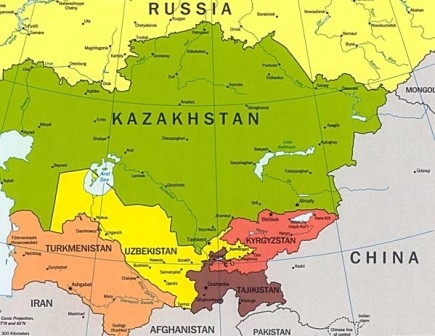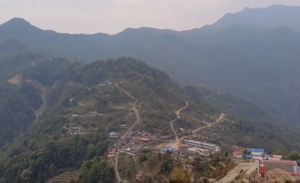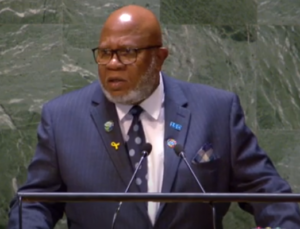Formation of the Central Asian Tourism Board (CATB)

By Agha Iqrar Haroon ——————–
Central Asian Republics are one of the best possible tourism destinations of the world and they have played very good in tourism arena during the last 2 decades after their independence from former Soviet Russia.
These countries have everything to offer including ecotourism, natural beauty, hospitable and friendly people, good services and infrastructure. The impediment for further tourism development in this region is absence of strong interaction among tourism authorities of all these countries and friendly visa regime.
International tourists face serious problems when they wish to cross the border of one Central Asian Republic and wish to enter the other. One Visa Regime for North Americans, Australians and Europeans can boost Central Asian tourism and multiply its tourism revenue. This is possible if there is strong connectivity among tourism ministries of all these countries.
This can be achieved by setting up Central Asian Tourism Board (CATB) comprising of tourism authorities of all Central Asian countries. Such Board will also play a positive role for more friendly relations of all these countries in future.
Tourism is one of the most effective tools for revenue generation and establishing Peace that can be achieved through tourism and tourism should be considered not only a revenue provider but harmony and peace generator. Some unpleasant events in past not effected tourism of one or two countries rather whole Central Asia because conflicts always flash negative image of a country or region and Pakistan is an example that lost complete tourism industry just because of unrest and conflicts and situation in Afghanistan strongly effected tourism industries of Pakistan and even India although India is a peaceful place but unrest in Indian held Kashmir played havoc with Indian tourism industry.
The priorities of governments are sometime contrary to needs and demands of tourism industry.
In South Asia, governments of Pakistan, India, Sri Lanka, Nepal and Afghanistan have different political and diplomatic conflicts and this is the lead reason that South Asian Association for Regional Cooperation (SAARC) has failed to establish interaction and strong networking in the field of tourism because SAARC did not setup any tourism board to deal with this issue.
There are also certain conflicts among Central Asian republics and also in Eastern European countries. Therefore there is a need for a solid networking and connection among tourism ministries of these countries.
I believe that UNWTO Silk Road Plan can only achieve when more government and non-government actors and stakeholders of Silk Road countries come forward and establish strong networking and connect products and markets of all these countries as One Entity and One Product instead every country compete with each other because such competition sometimes create problems for cross border tourism.
I believe that South Asia, Central Asia and Eastern Europe are facing similar threats, challenges and having similar opportunities in the field of tourism operations, planning and practices. Strong tourism networking and direct contact among practitioners of the tourism industry is the only way to develop broad-based industry in Central Asia.
This proposed Central Asian Tourism Board (CATB) can look in following demands of tourism industry of the region that are directly related with government policies:
1: The Governments should support the establishment of Community Based Organisations (CBO) and assist them in developing Community Based Tourism (CBT) projects in remote and fragile areas to avoid mass tourism.
2: Governments should support small stakeholders of tourism sector.
3: The Governments should include Tourism as subject in the curriculum of secondary education.
4: UNWTO should share the reports of Ministerial meetings of Silk Road project to other stakeholders of tourism industry of these countries so private sector can know what are major impediments on the way of tourist friendly visa regimes among these countries and may discuss such issues with their respective Governments.
5: The Governments should encourage and ensure employment for women in the tourism sector through legislation.
6: The Governments should enact legislation that should accord tourism the full status of an industry, and that all facilities would be treated as industrial concerns and would qualify for the same benefits, interest rates, concessions and treatment as is extended to other industries.
7: Visa at Cross Border check posts should be provided to foreigners while travelling to and from in whole south Asia, Central Asia and Eastern Europe if one visa regime is not possible due to political and security reasons. All Governments can follow UNWTO recommendations regarding Visa issues in Central Asia as their guidelines.
8: The Governments should allow easier visa requirements with automatic issue of 30 day tourist visas with double entry to bona fide tourists when they are travelling in Central Asian Republics to boost tourism in countries like Tajikistan and Kyrgyzstan that do not have appropriate international connectivity with important airports. If Uzbekistan and Kazakhstan provide double entry visa to tourists, there are chances that tourists also travel to neighbouring countries and back to home from Uzbek and Kazakh airports that are effectively linked with international flight routes.
9: The Governments should establish a ‘one window’ system of formalities for international and domestic tourism investors.
10: The Governments should provide the mechanisms for a portion of the taxes levied on the tourism sector to be reinvested for the marketing and promotion of tourism and environmental protection.
Courtesy : dnd.com. pk (July 2014 )














